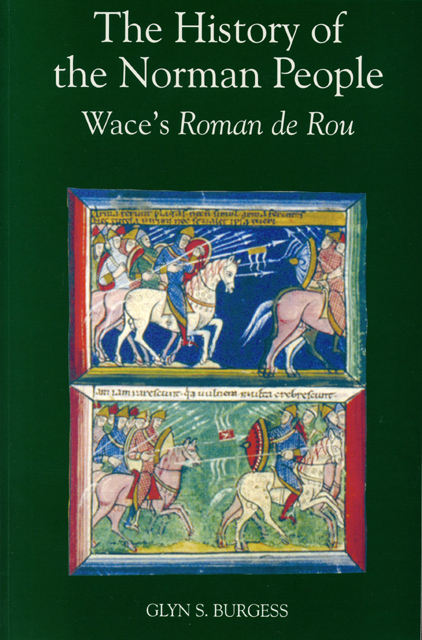Book contents
Part Three
Published online by Cambridge University Press: 21 March 2023
Summary
To remember the deeds, words and ways of our ancestors, the wicked deeds of wicked men and the brave deeds of brave men, books, chronicles and histories should be read out at festivals. If documents were not composed and then read and recounted by clerics, many things which transpired in times gone by would be forgotten. Over time, as the years go by, through changes in language, many towns and regions have lost their original names. England was called Britain and its first name was Albion; London was called Trinovant and before that New Troy. Everwic [York] was called Eborac and firstly Kaer Ebrac. South Wales was Demetia and North Wales Venedocia. Scotland used to be called Albany, Poitou and Gascony Aquitaine; Brittany was Armorica and Alemainne Germany. Cologne was called Agrippina, Thérouanne Morine, Paris Lutetia, the land of Greece Pelasge, Apulia and Lombardy Italy and Constantinople Byzantium. Bethlehem was called Effrata, Jerusalem Gebus, Burgundy Allobroga, Autun Cacua; Judea was Palestine, Sebastye Samaria, Orléans Genabés, Valognes Nantus, Rouen Rothoma, Avranches Ausiona, France Gaul, Wales Cambria and Normandy Neustria. (1–44)
Neustria lost this name and I will tell you why this happened. Whatever there is towards the north, which we call the Chariot in the Sky [the Great Bear], whether it is sky or air, land or sea, everyone is accustomed to call north, because from the north there comes and rises a wind from where the sky holds its chariot. The English say in their language, according to their usage: ‘We are going to the north, we come from the north, we were born in the north, we live in the north’. They say the same about a wind from the east, from the south and also from the west. In English and Norse ‘man’ is equivalent to ‘homme’ [hume] in French. Bring together ‘north’ and ‘man’ and together you say Northman, that is ‘man of the north’ in the vernacular, and from this came the name Normans. Those who were born where the north wind comes from are habitually called Normans, and from the Normans is derived the name Normandy, which they have populated. It used to be called Neustria, as long as it belonged to the French, but because of the men who came from the north it retained the name of Normandy, because the Normans, who lived in that land, populated it.
- Type
- Chapter
- Information
- The History of the Norman PeopleWace's <i>Roman de Rou</i>, pp. 89 - 220Publisher: Boydell & BrewerPrint publication year: 2004



